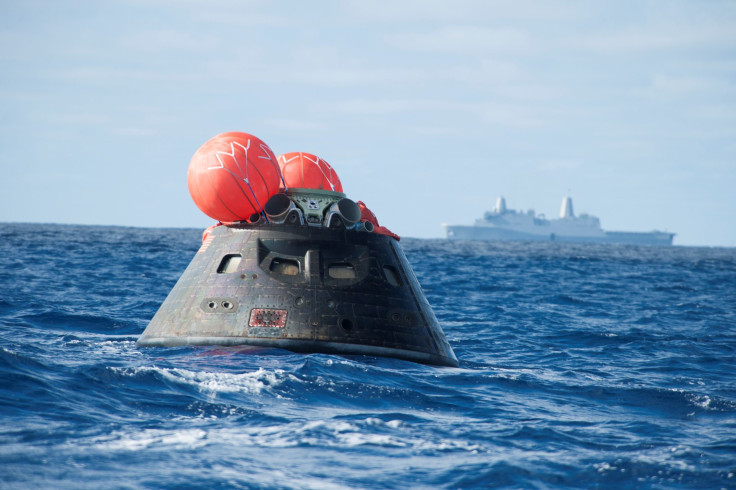NASA 2016 Budget Gets Proposed Increase As Obama Pushes For Manned Launches, Europa Mission

NASA's financial woes are far from over, but it appears the space agency remains in good standing with President Barack Obama. As part of his fiscal-year 2016 budget proposal, Obama requested $18.5 billion for the space agency, an increase from the $18 billion approved in 2015. The return of manned launches to the U.S., the Orion spacecraft and a Europa mission remain priorities in the budget proposal.
In fiscal 2015, Obama requested $17.5 billion and the Senate passed a bill that gave NASA $18 billion. The additional money went to the Science Mission Directorate, including a bump in planetary sciences and $100 million for a mission to Europa, Jupiter's moon, which may have a hidden ocean beneath its icy surface. NASA's next-generation spacecraft and rocket system, Orion and the Space Launch System, received plenty of funding as did the Commercial Crew Program.
The proposed 2016 budget is almost identical to the 2015 budget with minor increases spread across the agency. Space operations, exploration and space technology received budget increases of more than $100 million. Space operations, including the cost of the International Space Station, received a proposed 2016 budget of $4 billion, up from $3.8 billion in 2015.
Exploration's $4.5 billion budget is mostly split between Orion, Space Launch System and NASA's commercial spaceflight activities. Orion, which had its first test flight in December, will receive $1.2 billion while Space Launch System will receive $2.1 billion. The space agency wants to bring manned missions back to the U.S. by 2017 and awarded Boeing Co. and SpaceX contracts to develop spacecraft that will ferry astronauts to the International Space Station. Obama requested $1.2 billion for the commercial program, the Washington Post reported.
Space technology's budget increase may not appear like much, but it's a welcome change from previous years. Mason Peck, an associate professor at Cornell University and former NASA chief technologist, discussed the importance of the Space Technology Mission Directorate with the International Business Times in December. "Specifically, Congress continues to underfund the Space Technology Mission Directorate, which is where the agency invests in the much-needed technologies -- for example, to take us to Mars, explore exoplanets and asteroids, and create the game-changing innovations that have historically paid back taxpayer dollars many times over when they spin off into commercial products for American companies," Peck said. The proposed budget sets aside $733 million for Space Technology, an increase from the $596 million it received in 2015.
"Looking to the future, we’re planning a mission to explore Jupiter’s fascinating moon Europa."-Bolden #StateOfNASA pic.twitter.com/v9L46zn4Up
— NASA (@NASA) February 2, 2015NASA's Science Mission Directorate, which oversees the development of the James Webb Space Telescope, the Europa mission and the 2020 Mars Rover, had a proposed budget of $5.3 billion. Interestingly, the Asteroid Redirect Mission received funding, the Washington Post reported. The controversial mission to capture an asteroid and fly astronauts to the object to collect and return samples via Orion has been the subject of much debate. Some experts argue the money could be better spent to send astronauts back to the moon.
"NASA is an incredible investment for our nation.. uncovers new knowledge; helps raise the bar of human achievement." -Bolden #StateOfNASA
— NASA (@NASA) February 2, 2015© Copyright IBTimes 2024. All rights reserved.





















